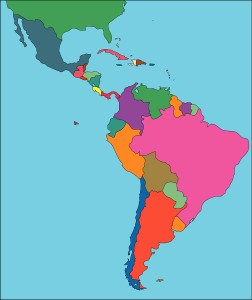Marsh, Guy Carpenter and Jardine Lloyd Thompson Group, all now under a single corporate umbrella, are planning to combine their facultative reinsurance operations in Latin America.
The action represents a big consolidation move by Marsh & McLennan, which owns Marsh and Guy Carpenter, and recently closed its $5.6 billion purchase of JLT in April. Boosting customer capacity and services is the underlying goal.
 “By combining the facultative reinsurance offerings of Marsh and Guy Carpenter with those from JLT, we will be able to offer insurers and insurance buyers a more efficient way to access global reinsurance markets,” James Nash, CEO, International, Guy Carpenter, said in prepared remarks.
“By combining the facultative reinsurance offerings of Marsh and Guy Carpenter with those from JLT, we will be able to offer insurers and insurance buyers a more efficient way to access global reinsurance markets,” James Nash, CEO, International, Guy Carpenter, said in prepared remarks.
Marsh & McLennan revealed the combined business will be known as Carpenter Marsh Fac Re, with plans to consolidate the business pending regulatory approvals.
Marsh & McLennan said it envisions the combined operation as becoming a major player in Latin America as a facultative reinsurance intermediary. Carpenter Marsh Fac Re will also have substantial data capabilities and expanded insurance market relationships in a change the company said will help better serve clients.
Marsh has designated Andrew Perry, who is currently in charge of Mercer Marsh Benefits, to lead Carpenter Marsh Fac Re as CEO. He will be based in Miami and report to Dean Klisura, president of Global Placement at Marsh, and Ricardo Brockmann, CEO of Marsh Latin America and Caribbean (LAC). Before taking up his position at MMB in 2014, Perry, who joined Marsh in 1988, was client and business development leader for Marsh’s LAC region.
Juan Carlos Gomez, currently leader of Guy Carpenter’s office in Colombia, will serve as deputy CEO for Carpenter Marsh Fac Re. He will remain based in Bogota and report to Perry.
Facultative reinsurance forms an integral part of many insurance companies’ reinsurance arrangements and is frequently used to manage their exposure to the accumulation of risk in certain areas. In addition, legal regulations governing insurance placements in many Latin American countries mean that facultative reinsurance is often used for many complex or higher-value risks as a way of accessing non-local insurance capacity, Marsh explained.
Source: Marsh





















 Focus on Ski Guides After Deadly California Avalanche Could Lead to Criminal Charges, Civil Suits
Focus on Ski Guides After Deadly California Avalanche Could Lead to Criminal Charges, Civil Suits  Premium Slowdown, Inflation Factors to Lead to Higher P/C Combined Ratio: AM Best
Premium Slowdown, Inflation Factors to Lead to Higher P/C Combined Ratio: AM Best  10 Do’s and Don’ts of a Smart ORSA Report
10 Do’s and Don’ts of a Smart ORSA Report  AI Claim Assistant Now Taking Auto Damage Claims Calls at Travelers
AI Claim Assistant Now Taking Auto Damage Claims Calls at Travelers 




